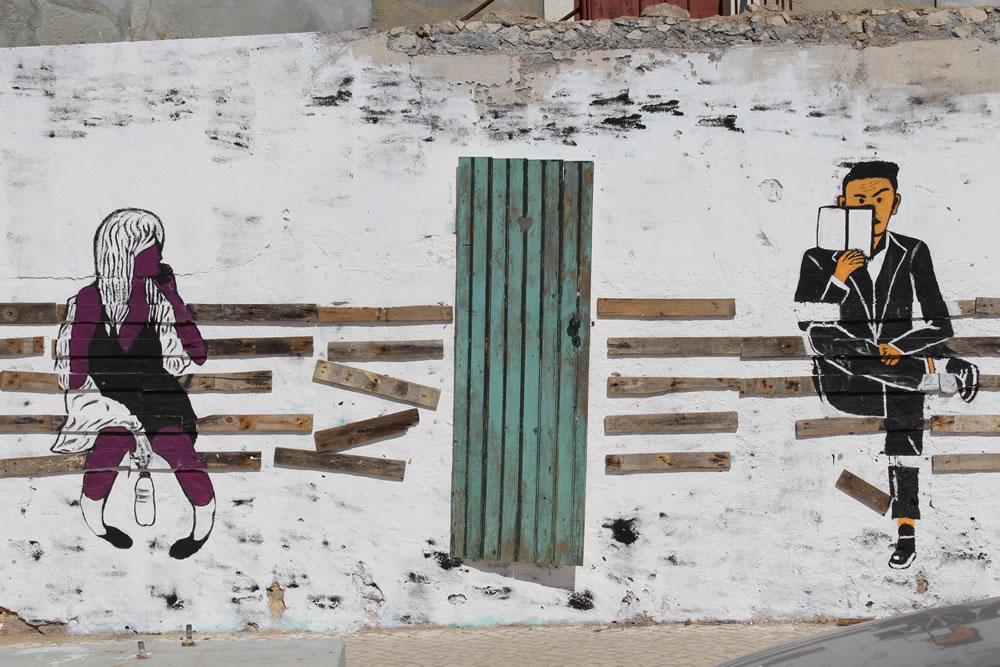American writers who are read as part of Ethnic Literature do not perform with the authorial intention of being identified or read as such. Yet, they are.
American writers who are read as part of Ethnic Literature do not perform with the authorial intention of being identified or read as such. Yet, they are. As a result, once this moniker is imprinted upon their work, their writing begins to carry a different weight and perform a different labor than white American writers. At times their writing is expected to represent an ethnic experience, as opposed to being read as a mainstream American experience. Writers labeled ethnic do not strive to write to prove nor educate those in power on their experience, but their work serves that purpose. Instead, they produce innovative writing much like white writers who are deemed solely American.
White American authors on the other hand can write of a plethora of experiences and still be read as canonical. For them this may include writing of ethnic experiences. For example, in Island of the Blue Dolphins (1960) Scott O’Dell writes of the last surviving indigenous girl in California and in Sadako and the Thousand Paper Cranes (1977) Eleanor Coerr writes of the devastation caused after the bombing of Hiroshima in World War II. Both young adult books center on the experience of young girls who must live in the aftermath of the violence inflicted on their bodies, communities, and native geographies. Both of these books have been read by elementary school students in California as part of an effort to include ethnic histories in the classroom. Both of these books were my first encounters with works of literature produced by white American authors who write ethnic narratives. In other words, my first experiences with ethnic texts are crafted from the perspective of white authors. Truthfully, that is problematic.
This is an example of white American privilege. White Americans can produce a wide range of narratives beyond their lived experience. Meanwhile, canonical ethnic writers write of their ethnic lived experience, often tied to the histories of institutionalized racism inflicted upon them, and very few write of experiences beyond their own. The following books are examples of American canonical writers whose texts center on lived ethnic narratives and texts that shaped me as a reader; Invisible Man (1952) by Ralph Ellison, The Fire Next Time (1963) by James Baldwin, Macho (1973) by Victor Villaseñor, Hunger of Memory (1982) by Richard Rodríguez, The House on Mango Street (1983) by Sandra Cisneros, Borderlands/La Frontera: The New Mestiza (1987) by Gloria Anzaldúa, and The Joy Luck Club (1989) by Amy Tan. All of these authors fall within the purview of Ethnic American literature. Arguably, educators and canon makers make it clear to readers that these authors are ethnic writers before they are American. In some ways, this classification marks a limitation in terms of the potential value their work can have within an American literary landscape because their labor—writing— is limited in terms of how it is read because they serve as examples of ethnic representations. The value of one’s labor is determined by one’s coloniality of power. How a writer functions in relation to the dominant group is what Anibal Quijano considers coloniality of power.
Within this notion, the labor of white people historically has been given more value than the labor performed by non-Whites. In the present, non-whites and whites are writing, but this does not mean both are received the same way. Often, those in power in American literary spaces are white and thus they establish what has more value through the topics, themes, and tropes recognized as part of mainstream literature. Consequently, those in power determine how ethnic writers are situated within the cannon. Ethnic writers within the canon write of their oppression from their oppression to those benefiting from the very same colonial legacy; inevitably they are speaking against those who are oppressing them, while simultaneously sustaining the very same structures of oppression. It is as if they are only seen, read, heard, and given space if they speak of/from their oppression. Hence, ethnic narratives are often read as writing that veers out of the ordinary in exceptional ways. On the other hand, I wonder if these authors can write of experiences beyond their ethnic one? How would people read books written by ethnic authors that centered on the hardships experienced by a white young girl from a middle-class background?
Perhaps, these writers might not write of such experience because they are tasked to write solely on their lived ethnic experience due to the absence of those narratives within the cannon during their time. Simultaneously, if they do write about other lived experiences beyond their ethnic one, they might be seen as sellouts by their own ethnic enclave. Regardless, these are the types of questions an ethnic American writer must grapple with when producing a text. For white American writers it is the absence of this conundrum and their ability to write of lived experiences beyond their own that puts them in a place of privilege due to this access to constructing narratives.
Over the years, the books listed by Ellison, Baldwin, Villaseñor, Rodríguez, Cisneros, Anzaldúa, and Tan have stayed with me. I carry these books as American, and never as Ethnic American. Not because I have a desire to erase the experience nor the colonial legacies impacting these authors and their writing. Rather, I read them as American because I believe they should be placed and read within the center of the canon and be given the same value as white American canonical authors. So, I wear their texts like beautiful necklaces of words like a family air loom made out of valuable minerals; a priced possession, both beautiful and sacred. Because for me, writing is to string and pull words together like beads, pearls, or chaquiras into a necklace. One word on its own seems to hold little value, but when it is arranged with others in bunches it begins to gain more value as it takes the shape of a necklace. Once the necklace is complete, as a reader I carry it, offer it as a gift, or tuck it away in a safe place like a family air loom.
Still, I long to read books within American Literature, which tell the story of ethnic communities. Perhaps those books have already been written? and the problem lies in that they are read as Ethnic American, only? Perhaps they should be read as examples of American literature, first? This is where my own reading and ethnic experience converge. I strive to read authors who are seen as ethnic, and in my writing of these authors, I seek to go beyond just explaining how or why their work is ethnic like them. I remind myself of this as a reader, often because I want to do a fair and just reading of all books. I want to read all authors as makers of unique arrangements with words, and to read them under only one lens or perspective seems to be reading them in tunnel vision.
It is in hindsight, it is in my training as a reader and writer at the University of California where I began to gain an awareness of the categorization or existence of American literature that is deemed other, that is deemed ethnic. For me when I consider Ethnic American narratives, I think of all of the texts I read from elementary to graduate school. The characters and storylines within these books unfold within an American sociocultural backdrop, and in some ways, a lot of the storylines are based on the desire to undo years of oppression. There is also a desire to establish one’s identity in relation to the self.
As a literary critic like these American authors, I speak of and from my coloniality of power. I realize, I am read or heard the most by the dominant culture, when I speak of the oppression of others in my ethnic communities; Latinx and Mexican. Yet, as a literary critic, I have found that American literary critics read as ethnic do not perform with the intention of being seen or read as such, yet we are, and as a result our writing holds a different value than white American literary critics. I do not strive to write to prove nor educate those in power on my experience. Instead, I seek to produce innovative writing much like literary critics deemed American, only.
Bio:
Julio Enríquez-Ornelas is an Assistant Professor of Spanish and Coordinator of the Spanish Education Program in the Department of Modern Languages at Millikin University. He is a Coleman Foundation Faculty Fellow in Entrepreneurship and the James Millikin Estate Professor in Education. He completed a Ph.D. from the University of California-Riverside specializing in twentieth to twenty-first century Latin American literature and late nineteenth to twenty-first century Mexican narrative. His teaching and research explore how history, gender, race, and social class intersect in Latin America and Spain. His critical and creative work has appeared in Hispania, Journal of the Midwest Modern Language Association, Textos Híbridos, Alchemy: Journal of Translation, El BeisMan, “La open letter” by Ediciones Patito and Paloma Revista.





